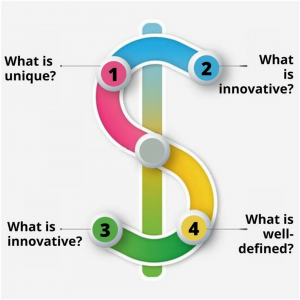Hospitality Tech as a Service
Hospitality tech as a service is the application of Information Technology (IT), Information and Communications Technology (ICT), or automation in hospitality.
Smart technology is changing the way we travel. The hospitality tech as a service in the industry is not untouched by the technology revolution. Today’s hospitality market is much more competitive.
It requires organizations to use advanced innovations to ensure guests’ satisfaction. Therefore, let’s examine the feasibility of Hospitality Tech as a service.
- 85% of international travelers carry a mobile device with them while traveling
- 76% of tourists say their smartphone is the most valuable travel companion
- 74% of guests would use the hotel app if their favorite hotel had one
- 70% of last-minute hotel bookings are made on mobile devices
- Hotel apps and other hotel technology affect the booking decisions of 70% of travelers
- 88% of guests want a mobile app that supports a personalized experience
The evolution
Hospitality tech as a service has come a long way since 3 decades ago hotels were barely starting to launch their websites on the internet. 1994 marked the debut of the first-ever online hotel catalog.
Soon some hotels started offering guests real-time access to central reservations and online booking capability. Just before the launch of the iPhone, Wi-Fi started to gain traction in hotels.
Soon mobile apps and in-room iPads started trending. Now, we have seen hotels served by robots. The Internet of Things (IoT) and Artificial Intelligence (AI) have already found their way into the hospitality industry.
Every technology-based service aims to enhance the guest experience. That can be achieved by offering convenience and efficiency.
These are on-property hardware devices or appliances, and software applications (on-premises or cloud-based). They provide or enhance guest services, improve guest comfort and satisfaction and enable customer service and communications.
Let us take a look at the technologies and emerging trends as we head into 2021. Many of them promise to further transform the hotel experience for everyone involved.
Trends To Look Out For
Smart Hotels
Occupancy sensors can measure the fluctuations in occupancy. This is done by using smart thermostats to check the room temperature.
Smart energy-management systems optimize energy consumption in real-time, all year round. Advanced algorithms analyze historical temperatures and peak demand loads.
Reduction in hotel energy costs up to 20% is observed. In addition, built-in streaming services, keyless entry, and smart mirrors are other examples.
Automated Check-in And Check Out
Guests can check-in remotely through their smartphone, significantly saving time for the concierge. It alerts staff when guests are about to arrive.
Thus, the staff can offer upsells and personalize the guest experience. The guests have the facility to self-check-out at the end of their stay, all from the same app or website.
Chatbots, AI, and Assistants
A chatbot is a service that allows you to interact with an AI via a chat interface. For example, helping guests to schedule room cleaning or asking for late check out at the time of leaving.
Maybe a fruit basket before arrival. Sweet. Some hotels are even exploring the use of AI-powered robots. Hilton Hotels introduced Connie, the first-ever concierge robot in 2016.
Now Henn-na Hotel in Japan operates as the world’s first hotel entirely staffed by robots.
Smart Concierge And Mobility Solutions
Smart mobility solutions can now be integrated directly into the guest experience. For example, a web widget enables customers to book a ride to the hotel as soon as they book their stay through the website.
Once in the hotel, the guests can approach the concierge to book and manage rides on their behalf. Besides, many hotels have self-service booths in their lobby. So, this facilitates guests to search for all available transportation options for getting around in the city.
Near-field Communication (NFC) Technology
Near-field technology for wireless data transfer senses technology nearby your device. This ensures communication without needing an internet connection.
In addition, NFC enhances how customers spend, transfer data, or connect to different media. For instance, guests can use their smartphone as a smart room key or pay for various services.
Recognition Technology
Face scanners are helpful to verify the identity of guests. Hence, check-in and access to the dining room for breakfast are much easier.
Voice recognition also has a role, with many hotels adding voice assistants. Recently, a company called Two Roads Hospitality has partnered with Amazon.
Together they will develop a customized Alexa for Hospitality platform. Therefore, the purpose is to assist staff to catalogue maintenance problems or identify which rooms are available for check-in.
Blockchain and Cryptocurrency
Blockchain can also be used as a public ledger or list of encrypted digital records. Here transactions are recorded anonymously and permanently.
This ensures payment security and fraud protection within hotels. In that, blockchain technology will hopefully eliminate third-party costs. It also encourages direct providers to consumer interaction.
Consider LockTrip (LOC), which is a blockchain-based hotel and vacation rentals marketplace. This platform allows hotels to manage bookings, with listings priced at the real-time exchange rate.
So, this technology allows hotels to offer prices 20% below the market rate.
Future
The current hospitality landscape presents challenges and opportunities. Yet, traditional hoteliers have little choice but to embrace technological transformation head-on.
This is their ticket to maximize guest loyalty, grow revenue, and support future growth.
Most importantly, hoteliers should use technology to engage and bring the customer to their property, maintaining the conversation before, during and after the stay and eventually turning their visitor into a loyal guest.
Although traditionally, hotel staff expressed certain apprehension towards the implementation of new technology. Now, many new-age platforms offer a transformative, user-friendly experience.
Legacy platforms of the past demanded hours of training. Often those platforms created more work for employees. Modern mobile platforms are unlike them as they are built with the employee in mind.
Employees can now utilize a hand-held device for a more flexible work environment. Uninterrupted access to guest information will improve task management and reporting easier.
Moreover, communication with other departments and much more is now only a few clicks away. Hotel technology is a long game. The expectations and needs of guests are subject to change, based on emerging trends.
Therefore, agility will ensure the success of hoteliers well into 2021 and beyond. Funding your business is one of the first — and most important — financial choices most business owners make.
Take a look at Alcor’s free reports. Hence, assess your business on our high-end AI platform to get maximum results and funding from our global investors.









